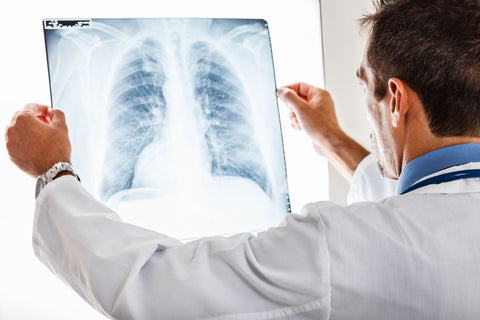on US orders over $100
on all US orders over $100

World Pneumonia Day is held annually on November 12 to raise awareness of pneumonia, promote prevention and treatment, and to generate action to fight the illness. News, messages, and events promoting World Pneumonia Day are publicized and made viral through social media networks, online, print and broadcast media, and through word of mouth. People are asked to help fight this disease by participating in education programs, voluntary work, or contributing via donations.

Pneumonia is an acute respiratory infection that limits oxygen intake and makes breathing difficult and painful. The lungs fill up with fluid or pus, which makes it difficult for one to breathe in enough oxygen to reach their bloodstream. Pneumonia can be mild, or so severe that it may send the patient to the hospital.
Anyone can get this disease, but infants younger than age 2 and people over age 65 have the highest odds. That is because their immune systems might not be strong enough to fight it.
Pneumonia is the biggest killer of children under age 5 worldwide. Nearly 1 in 5 global child deaths result from pneumonia every year, but it doesn't have to be this way. Pneumonia is actually a preventable and treatable illness via vaccines, antibiotic treatment, and improved sanitation.
You can get pneumonia in one or both lungs. You can also have it, and not even know it! This is called "walking pneumonia." If your pneumonia is caused by a bacteria or virus, you can spread it to someone else.
Pneumonia can have many causes, including:
Some people also get "ventilator associated pneumonia" if they develop the infection while on a ventilator. Pneumonia can also be "hospital acquired," if you get infected in a hospital while not on a ventilator, or "community acquired," developed outside a hospital.

Pneumonia symptoms can be a complication of colds and flu, meaning that it may not be immediately recognizable at first. You may have the following:
When to see a doctor: Call your doctor right away if symptoms of your cold or flu do not start to improve with rest and treatment, or if the symptoms begin to get worse. If you think you or your child have symptoms of pneumonia, do not wait for them to get worse. Call your doctor. Everyone who has pneumonia must see a doctor.

How your pneumonia is treated depends on what caused it and how bad your symptoms are. If you have bacterial pneumonia, your doctor will give you antibiotics to treat it. He'll also take steps to prevent complications.
If your pneumonia was caused by a virus, treatment includes lots of fluids and bed rest, as well as management of other symptoms and any complications.
If the pneumonia becomes severe, you may have to stay in the hospital for treatment. While there, your doctor will probably give you fluids or antibiotics through an IV tube. Depending on the severity, you may need oxygen therapy or breathing treatments.
Pneumonia, no matter what the cause, can lead to other medical troubles, such as:
Getting pneumonia after surgery can be quite serious. According to the CDC, studies have suggested that pneumonia acquired in the hospital can be fatal as often as 33% of the time. Your doctor should help advise on ways to protect yourself, such as:
Need respiratory products to improve your breathing quality and make life more comfortable? Visit Mountainside Medical Equipment! We've got the best in quality respiratory products including everything from nebulizers to PEP therapy devices. Click this link to visit our asthma product collection!
Leave a comment